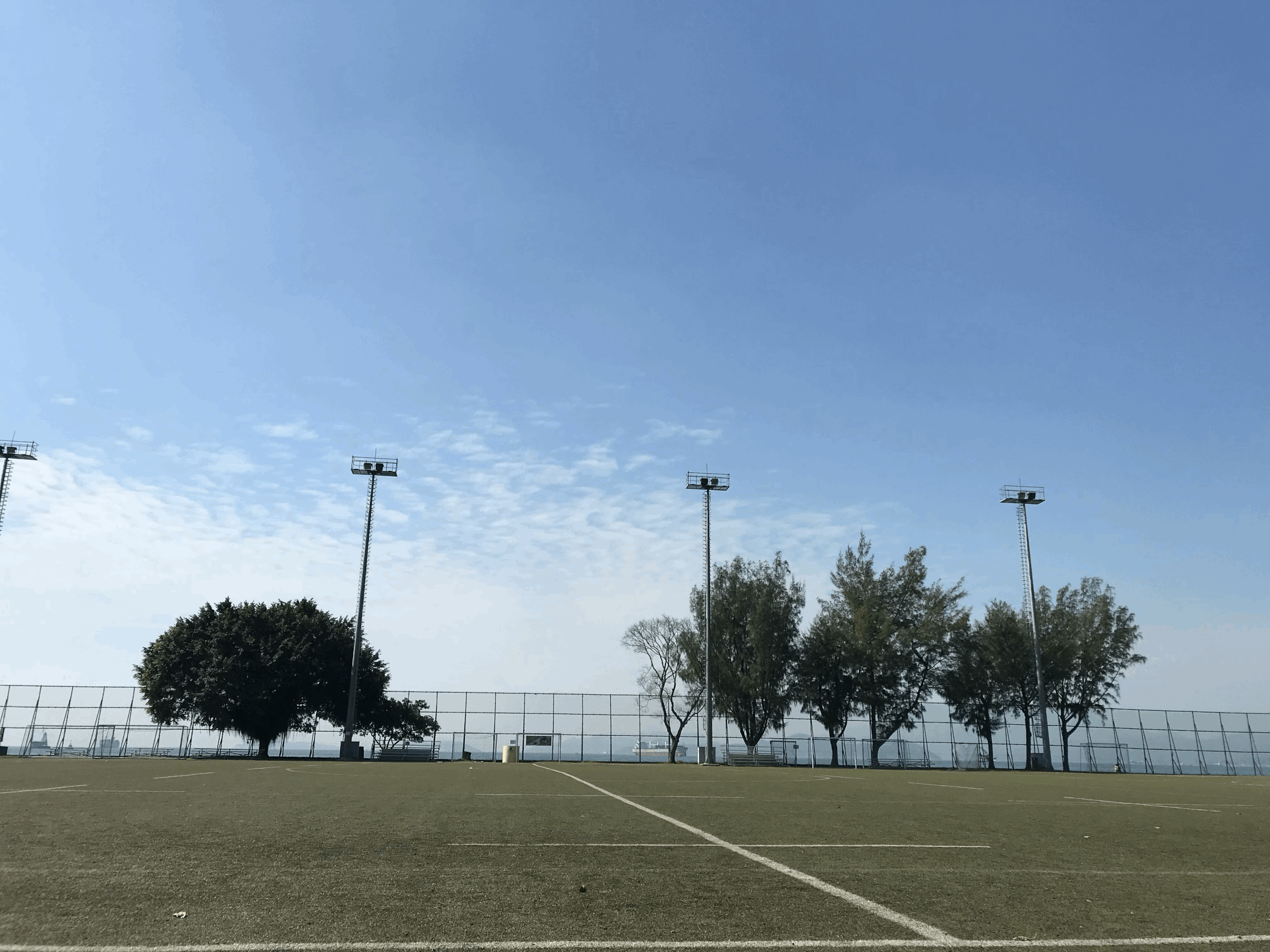
HKU MBBS
Written by: Beata Wong , Claire Chen
Date: 9th of January, 2021
Studying in HKU
Muscle tissue identified under a microscope from pathology lessons
Curriculum
MBBS in HKU is a 6-year programme with years 1-2 being the preclinical years, year 3 as enrichment year and years 4-6 being clinical years. Semester 1 in year 1 is the ‘Art and Science of Medicine’ (IASM) so you’ll learn a bit about everything, including biochemistry, embryology, immunity, pharmacology, precision medicine etc. Starting from semester 2 in year 1 it’ll be system blocks with cardiopulmonary and renal system (CPRS) block being the first one to tackle.
More about IASM
Due to the covid situation, all lectures in semester 1 have been conducted through live zoom but they only occupy a small part of the curriculum (at most 3 live lectures per week, sometimes 1-2 or even none). Most content is covered in e-learning videos (ranges quite a bit but shouldn’t be more than 10 lectures a week) which would be released through Moodle on a weekly basis. There would be live interactive sessions scheduled through zoom for students to ask questions. As for clinical and practicals, most of them were face to face where we learn how to measure pulse, blood pressure, take nose and throat swab and had some basic introduction to anatomy respectively for IASM. There’s also traditional Chinese medicine (TCM) newly introduced as part of the curriculum this year.
Besides learning the science content about IASM, we also had medical ethics and law (MEL), medical humanities, professionalism in practice, giving us opportunities to discuss about the ethical side of medicine.
IASM is a pretty different approach to many universities across the globe and it would mean learning all the anatomy at a later stage when system blocks starts in semester 2. Some students might find IASM confusing as it covers content from a very wide range but it is important for the understanding of future system blocks as it gives you a basic concept while some chapters are a revision of high school biology/chemistry.
Assessment and other modules.
Assessment
60% is a passing mark for MBBS exams and scores between 50% to 59% will be categorised as a fail while those below 50% would be a bad failure. As daunting as this sounds, the exam in held in December for semester 1 is a formative and therefore does not count towards your MBBS I grade. The summative held in May for semester 2 is a summative and if students failed, they are allowed a supplementary in the summer to determine if they could be promoted to year II. There’s also problem based learning (PBL) and medical humanities which are graded as a continuous assessment. Besides written exams, students also have an Objective Structured Clinical Examination (OSCE) exam in semester 2, covering content learnt in clinical skills sessions.
Other compulsory courses
Each MBBS student is required to complete 4 common core courses within the course of 3 years but most students choose to finish them in their preclinical years. There are 4 areas of inquiry and students are required to take 1 course from each of them. I personally took 2 courses in semester 1 and will be taking 1 each for semester 2 and semester 1 of MBBS II. Some courses will take up more time and have more assignments or even exams and therefore it’s vital to carefully compare the study load and assessment method for each course. Unlike other courses, MBBS doesn’t use the GPA calculation system and therefore we would only need a pass for the common core courses.
Some students would need to take CAES1000, an English course if the English requirement hasn’t been met at the point of entry. It could be proven through DSE or GCE English results, IELTS and other means.

Hall Life
Why did I apply to Halls despite COVID
Few months ago, I was given the choice to live at home or apply for hall accommodations for the coming year. And to be honest it was quite obvious for me that I would go for the latter. Rather than holding me back, COVID has probably made me want to live in a hall even more than I did before. Since most teachings are moved online, it has become too difficult to meet new people and make friends. And since we all know making friends over zoom doesn’t work, I thought getting in a hall is probably a good option. Having studied in the UK, living away from my family was nothing new, and considering my amazing experience with boarding in general, it just made sense for me to apply for halls.
Quick Note
There are 13 residential halls in HKU, 2 on the main campus and 3 near the med campus. There are also 2 non-residential halls and 4 residential colleges which runs in a completely different manner compared to the 13. And since I have very limited knowledge on the non-residential halls and residential colleges, this blog will mainly focus on introducing you to the residential halls.
Hall Culture
While each hall has a unique and sophisticated hall culture, it’s usually not as straight-forward as a motto on a yearbook, but rather an alignment on how they treat certain issues and how people treat each other within the hall. It is often hard to understand for people who have not had the experience living in that hall and may even seem futile to others, but somehow there is just no other way to understand it unless you live there. Within each of these residential halls, there is a students’ association executive committee that is in charge of the day-to-day operation in the hall. From shortlisting hall applicants, to holding inter-floor competitions and organising logistics for whole-hall activities, the ExCo are basically are responsible for retaining hall traditions of the hall and at the same time bring in new elements for changes and improvements.
Hall Activities
Each hall will have different sports teams, cultural teams and interest groups depending on the year, and the people. The most popular ones that you might have heard of are the ‘new ball’ teams, namely hockey, lacrosse and softball. They are called ‘new ball’ because very few people have past experience with these sports and hence almost everybody on the team starts fresh. It’s therefore a very good opportunity for people who are not very keen on sports in high school but want to try something new in university. On top of ‘new ball’ teams, there are also the regular ‘old ball’ teams like basketball, badminton, soccer, etc. On cultural teams, variety goes beyond the normal dancing and debating teams you’d expect, but also extends to bridge and band teams. But again, this will depend on which hall you end up in, so you should do your research and ask around to see what teams each hall has to provide before you place your application.
Final thoughts
Although hall seems like a lot of fun, it is not for everybody. As a medical student, balancing social life and studies can be quite challenging, and it requires excellent time management and a lot of self-control. In these residential halls, compulsory activities and orientation series are unavoidable, and you will have to engage in them with all your effort in order to get the most out of it. Although you will meet a lot of friends and probably have a lot of fun, as a medical student, your workload is naturally more demanding compared to some of your friends from other faculties, and it is essential for you to be able to use your time wisely and learn how to prioritise. Not to mention, if you are usually against compulsory activities and engagements, halls may not be something that you will grow fond of. Although this may sound very harsh and scary, but after all if nobody is contributing to the hall, none of the teams will exist and the activities will only stay in your imaginations.
There are endless things that I’d like to share with you on my experience living in a hall, there’s just too much to talk about – the people I’ve met, the sports I’ve picked up, it has been a blast. But different people have different stories, and if you ask 10 people from the same hall, they will probably tell you different things about their experience. So if you want to know more about mine, or if you have any questions/ worry regarding applying to halls, feel free to pop me a dm and I will most willingly answer some of your queries!
